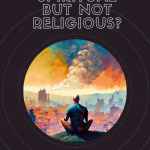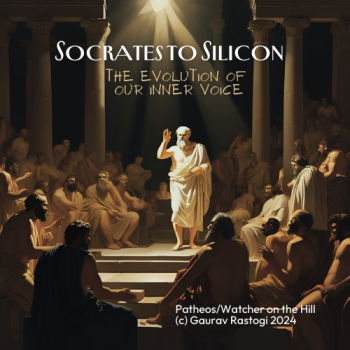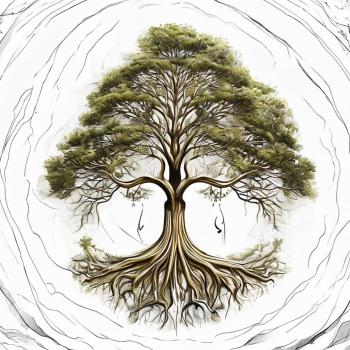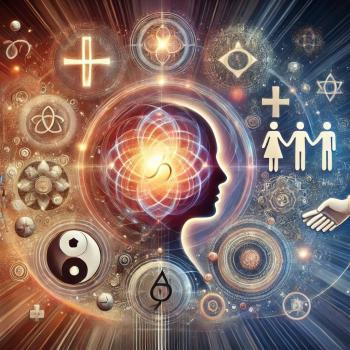We Care For The Self Alone
Maitreyi stopped her husband, the fabled Sage Yajnavalkya, as he headed out to the fourth stage of life, having willed his considerable wealth to his two wives equally. She didn’t seek after money– what use is money if everyone dies eventually? She wanted to know what he had learned about immortality. His heart gladdened at the question, and he answered her question carefully. He said,
“The husband is dear
not for the sake of the husband
But for the sake of the self
The son is dear
Not for the sake of the son
But for the sake of the self
Wealth is dear
Not for the sake of the wealth
But for the sake of the self
Not for the sake of the world
Is the world dear
But for the sake of the self
It is the Self that should be seen
Heard of,
Reflected on,
And meditated upon.”
—
A reflection of our selves
Put another way: We care not for the things themselves but for ourselves as reflected and connect to these things. As if standing in a Hall of Mirrors, we see ourselves reflected a thousand times and find joy in every shard that reflects our image. Things that do not reflect us do not concern us at all; we care only for those in the world we see ourselves in.
Call Him Tommy
It’s like this joke in Punjabi: “Sadda kutta ‘Kutta,’ Thwadda kutta ‘Tommy’” (My dog is just “dog,” but your dog to you is “Tommy.”). The parent of a dog thinks of it as their family member and would not stand anyone treating it as an animal. “Call him Tommy.” On the other hand, a street dog in a faraway country is a different matter. A non-domesticated creature even less so. We don’t feel their pain or presence.
Where does the Self stop?
To care more for the world and the things in the world, we have to extend our knowledge of our selves to include everything. Does my self end at the edge of my skin? Does my self include my family, my possessions, and my ideas? Does my self include my city, my community, my country? Where does the Self stop, and where does the “other” begin? This is a hard question, made harder in modern times as our sense of self is shrinking.
A Material World
The challenge of the material world has been limiting the self to what can be grasped by the senses alone. There is no subjectivity at all in modern science. All “other.”
The progress in science has only increased the reach of our senses (of perception or action). They have not contributed to any new sense perception. Thus habituated to the bright lights of science, we find it harder to reach the deeper truths that we could see clearly when our eyes were used to the dark, and we can perceive without any medium (Im-media-tely).
“We Hates It; We Hates It Forever”
No wonder we have come to dislike everything from this viewpoint. What is there to like? We are dis-inter-mediated from our own self, and nothing is dear to us anymore. The hall of mirrors no longer shows our image, and we see nothing we care for. A dull, joyless experience.
We know not the Self anymore. We have won the world but lost the Self. And with this apathy, we are also on the brink of losing the world.
How to Care for the World More?
How to care for the world more? We need to learn to experience the self, see it, hear about it, reflect, and meditate on it. To revel in pure subjectivity, when nothing appears outside our self, all seems connected and one. It is with this Identity that we will care for the world and everything that exists inside it. This was the message of Yajnavalkya to Maitreyi, who, too, had to choose between wealth and the knowledge of the timeless.
How Not To Lose the World? By Finding Our “Selves” In It.
















